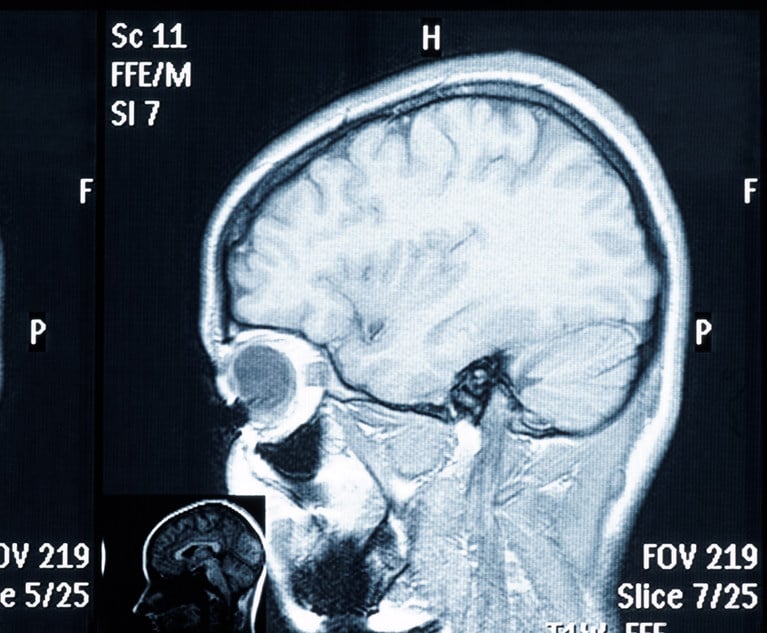Court Rightly Protected a Protected Class in Group Home's Discrimination Case
The court did not stand on technicalities, construe LAD, or the definition of “person” therein, narrowly, or read the Noerr defense broadly, achieving a result that can significantly help members of a protected class who cannot otherwise protect themselves.
June 02, 2019 at 12:00 PM
3 minute read
 Umkehrer / iStock
Umkehrer / iStock
In Oasis Therapeutic Centers Inc. v Wade, the Appellate Division held that it is a violation of the New Jersey Law Against Discrimination (LAD) to discriminate against a buyer of real property for use as a group home for autistic individuals “because of the disability of a person intending to live on the premises, even if the buyer does not fit within the protected class,” and “and that it is, with a discriminatory intent, unlawful to interfere with” such a purchase. The court reversed the dismissal of a LAD claim and rejected the trial court's determination that the defendants' “alleged interference with plaintiff's attempt to secure a monetary grant from a nonprofit foundation to assist with its purchase” was protected by the United States Supreme Court opinion in E.R.R. President's Conference v Noerr Motor Freight Inc., 365 US 127 (1961) “because it was not shown that the foundation was a governmental or quasi-governmental body.” Noerr protects those who assert First Amendment rights of free speech and to address grievances before such bodies. Finally, the court held that the trial judge should have permitted plaintiff to amend the complaint to include tortious interference with plaintiff's contract and economic opportunity.
The suit was commenced against those who interfered with the purchase, opposed and campaigned against plaintiff's receipt of a grant from the Monmouth Conservation Foundation (MCF), made a “sham offer” to buy the property, “offered to pay the seller $250,000 to break his contract” and interfered with the use and enjoyment of the property after the sale finally closed.
The court first held that plaintiff was a “person” with standing under LAD both because of its actual loss and “based on conduct directed toward it because of the benefits it provides to others in a protected class.” We agree with that interpretation in this case. We also recognize that the latter basis could result in numerous LAD claims filed by “persons” not themselves members of a protected class, but seeking to support them, particularly because of the ability to collect counsel fees under the fee shifting statute, but expect that the courts will keep the scope of application reasonably constrained.
Substantively, LAD was interpreted to prohibit actions “alleged to have induced or attempted to induce a discriminatory result,” here by interfering with the seller's dealings with the purchaser, opposing the MCF grant, and preventing plaintiff's use of the property.
We are pleased that the court did not stand on technicalities, construe LAD, or the definition of “person” therein, narrowly, or read the Noerr defense broadly. As a result, the Appellate Division achieved a result that, in many analogous circumstances, can significantly help members of a protected class who cannot otherwise protect themselves.
This content has been archived. It is available through our partners, LexisNexis® and Bloomberg Law.
To view this content, please continue to their sites.
Not a Lexis Subscriber?
Subscribe Now
Not a Bloomberg Law Subscriber?
Subscribe Now
NOT FOR REPRINT
© 2025 ALM Global, LLC, All Rights Reserved. Request academic re-use from www.copyright.com. All other uses, submit a request to [email protected]. For more information visit Asset & Logo Licensing.
You Might Like
View All
The End of Innocence? DEP’s End Run Around ‘All Appropriate Inquiry’ Spill Act Protections
10 minute read

Trending Stories
- 1With AI Expected to Be a Focus This Year, What Changes Can Midsize Firms Expect?
- 2Dissenter Blasts 4th Circuit Majority Decision Upholding Meta's Section 230 Defense
- 3NBA Players Association Finds Its New GC in Warriors Front Office
- 4Prenuptial Agreement Spousal Support Waivers: Proceed With Caution
- 5DC Circuit Keeps Docs in Judge Newman's Misconduct Proceedings Sealed
Who Got The Work
J. Brugh Lower of Gibbons has entered an appearance for industrial equipment supplier Devco Corporation in a pending trademark infringement lawsuit. The suit, accusing the defendant of selling knock-off Graco products, was filed Dec. 18 in New Jersey District Court by Rivkin Radler on behalf of Graco Inc. and Graco Minnesota. The case, assigned to U.S. District Judge Zahid N. Quraishi, is 3:24-cv-11294, Graco Inc. et al v. Devco Corporation.
Who Got The Work
Rebecca Maller-Stein and Kent A. Yalowitz of Arnold & Porter Kaye Scholer have entered their appearances for Hanaco Venture Capital and its executives, Lior Prosor and David Frankel, in a pending securities lawsuit. The action, filed on Dec. 24 in New York Southern District Court by Zell, Aron & Co. on behalf of Goldeneye Advisors, accuses the defendants of negligently and fraudulently managing the plaintiff's $1 million investment. The case, assigned to U.S. District Judge Vernon S. Broderick, is 1:24-cv-09918, Goldeneye Advisors, LLC v. Hanaco Venture Capital, Ltd. et al.
Who Got The Work
Attorneys from A&O Shearman has stepped in as defense counsel for Toronto-Dominion Bank and other defendants in a pending securities class action. The suit, filed Dec. 11 in New York Southern District Court by Bleichmar Fonti & Auld, accuses the defendants of concealing the bank's 'pervasive' deficiencies in regards to its compliance with the Bank Secrecy Act and the quality of its anti-money laundering controls. The case, assigned to U.S. District Judge Arun Subramanian, is 1:24-cv-09445, Gonzalez v. The Toronto-Dominion Bank et al.
Who Got The Work
Crown Castle International, a Pennsylvania company providing shared communications infrastructure, has turned to Luke D. Wolf of Gordon Rees Scully Mansukhani to fend off a pending breach-of-contract lawsuit. The court action, filed Nov. 25 in Michigan Eastern District Court by Hooper Hathaway PC on behalf of The Town Residences LLC, accuses Crown Castle of failing to transfer approximately $30,000 in utility payments from T-Mobile in breach of a roof-top lease and assignment agreement. The case, assigned to U.S. District Judge Susan K. Declercq, is 2:24-cv-13131, The Town Residences LLC v. T-Mobile US, Inc. et al.
Who Got The Work
Wilfred P. Coronato and Daniel M. Schwartz of McCarter & English have stepped in as defense counsel to Electrolux Home Products Inc. in a pending product liability lawsuit. The court action, filed Nov. 26 in New York Eastern District Court by Poulos Lopiccolo PC and Nagel Rice LLP on behalf of David Stern, alleges that the defendant's refrigerators’ drawers and shelving repeatedly break and fall apart within months after purchase. The case, assigned to U.S. District Judge Joan M. Azrack, is 2:24-cv-08204, Stern v. Electrolux Home Products, Inc.
Featured Firms
Law Offices of Gary Martin Hays & Associates, P.C.
(470) 294-1674
Law Offices of Mark E. Salomone
(857) 444-6468
Smith & Hassler
(713) 739-1250







